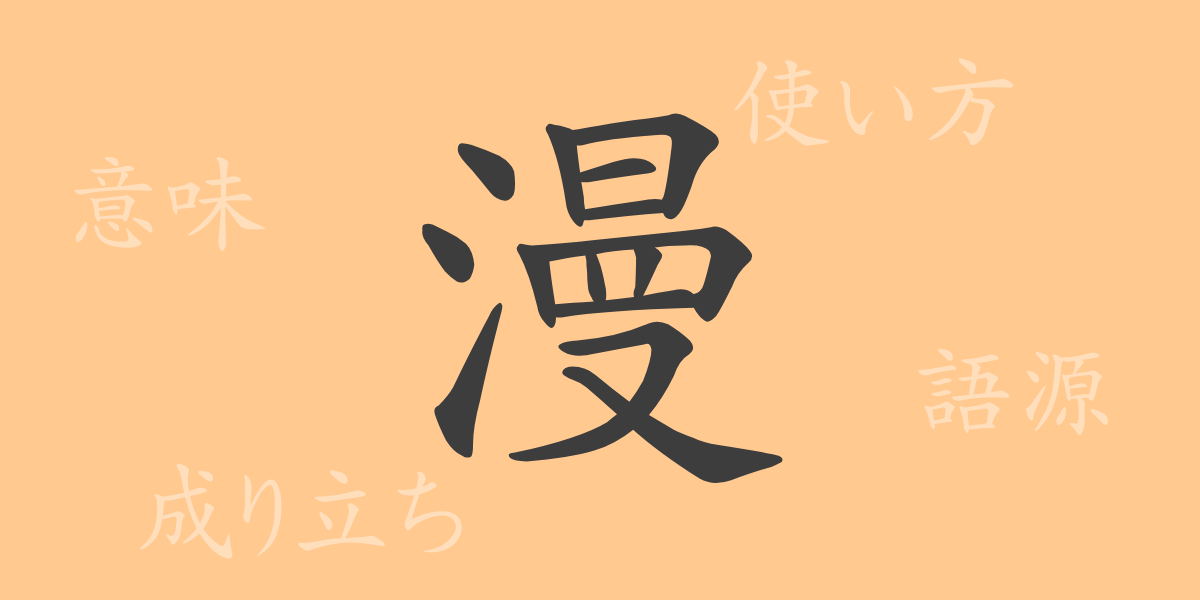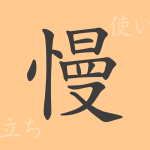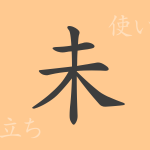The Japanese language features a vast array of kanji characters, each with its own unique history and meaning. The kanji “漫” (man) is commonly seen in the world of entertainment, such as in manga (まんが, comics) and manzai (まんざい, traditional Japanese comedy), but its usage extends far beyond that. In this article, we delve into the origins, meanings, usages, as well as idioms and proverbs associated with the fascinating kanji “漫” (man).
The Origins of 漫 (man)
The kanji “漫” (man) is an ancient character that originated in China. It is composed of the water radical “氵” (さんずい, sanzui) and the element “曼” (まん, man), which signifies spreading out. This combination represents the image of water spreading out and, by extension, came to mean “spreading out leisurely” or “spreading out disorderly.” Over time, the character “漫” (man) was adopted into the Japanese language, where its usage has expanded significantly.
The Meaning and Usage of 漫 (man)
The kanji “漫” (man) conveys meanings such as “spreading out leisurely,” “spreading out freely,” and “haphazardly.” This character is used in various contexts. For instance, “漫画” (まんが, manga) derives from the idea of “haphazard drawings,” referring to illustrations created with free imagination. The term “漫然” (まんぜん, manzen) describes a state of being aimless or without a clear purpose, while “漫遊” (まんゆう, manyuu) implies traveling leisurely over a wide area.
Reading, Stroke Count, and Radical of 漫 (man)
Let’s explore some basic information to understand the kanji “漫” (man).
- Reading: The on’yomi (音読み, Chinese reading) is “マン” (man). There is no specific kun’yomi (訓読み, Japanese reading).
- Stroke count: It has a total of 14 strokes.
- Radical: The radical is “さんずい” (みず, sanzui), which represents water.
Idioms, Proverbs, and Phrases Using 漫 (man)
What are some idioms, proverbs, and phrases that include “漫” (man)? Here are a few examples:
- 漫画 (まんが, manga): Drawings created with free imagination; nowadays, it refers to comic books with a storyline.
- 漫才 (まんざい, manzai): A traditional Japanese comedy style performed by a duo.
- 漫遊 (まんゆう, manyuu): Traveling leisurely over a wide area.
- 漫然 (まんぜん, manzen): Being aimless or without a clear purpose or consciousness.
- 漫歩 (まんぽ, manpo): Walking leisurely.
Conclusion on 漫 (man)
The kanji “漫” (man) symbolizes freedom and expansiveness, as its form and meaning suggest. In Japanese culture, it is especially cherished in the entertainment fields such as manga (まんが, comics) and manzai (まんざい, traditional Japanese comedy). However, its usage is not limited to these areas and can be found in various contexts in daily life. Through this article, we hope you have gained an appreciation for the rich expressiveness of the kanji “漫” (man) and its historical background.

























